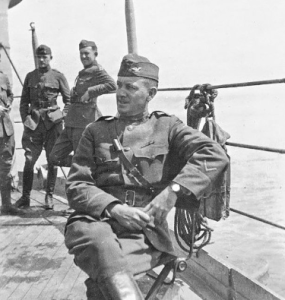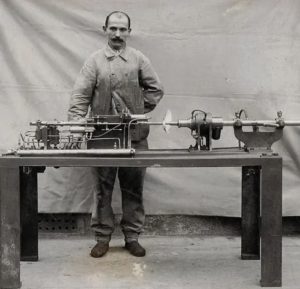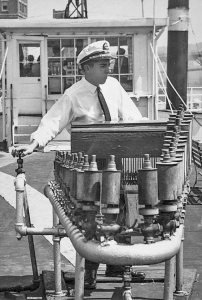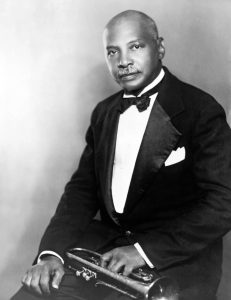Voting Open For National Rivers Hall Of Fame Class Of 2024
The National Rivers Hall of Fame, located at the National Mississippi River Museum & Aquarium in Dubuque, Iowa, has opened voting for its next class of honorees. Nominees this year are Gen. T.Q. Ashburn, John Boepple, Capt. Clarke C. “Doc” Hawley and W.C. Handy.
Voting goes through October 1 and is available online here.
More About The Nominees

Thomas Quinn Ashburn (1874-1941) was born in Batavia, Ohio, in 1874. He started as a cadet at West Point in 1892 and graduated in 1897. While serving in the Army, Ashburn received more than 16 service medals and decorations. He’s also the only man in U.S. history to be promoted to general officer twice by an Act of Congress, due to his role in developing inland waterway transportation in the United States. He would go on to serve as chief of the Inland and Coastwise Waterways Service and to be a founder, president and chairman of the board of the Inland Waterways Corporation.

John Boepple (1854-1912), a button maker in Hamburg, Germany, came to the United States in 1887 in search of freshwater mussels from the Mississippi River to make pearl buttons. He worked as a farm hand in Columbus, Iowa, and eventually partnered with William Molis to ship his shell-cutting machine to Muscatine, Iowa. By 1991, Boepple brought A.I. Kerr into the partnership. In time, Boepple’s button factories stretched from St. Paul, Minn., to New Orleans, with Muscatine established as the “Button Capital of the World.” When mussels became sparse on the Upper Mississippi River, fishers discovered beds along the Arkansas, Ohio and Tennessee rivers. He later testified before the House of Representatives’ Ways and Means Committee in support of the Dingley Bill, which protected American pearl button manufacturers.

Capt. Clarke C. “Doc” Hawley (1935-2022) was the first master on the steamer Natchez in New Orleans. Throughout his long career on the river, he served as master of three of the four remaining Mississippi River system steamboats, all the while promoting the history of the river. His steamboating days began on the tramping excursion boat Avalon. He later served on the Delta Queen and the Belle of Louisville, before moving to the Natchez. While at the helm, Hawley hosted presidents and other government officials, royalty, entertainment and sports stars, “river buffs” and members of the media. He served as a modern day steamboating public relations man and goodwill ambassador. He co-authored “Moonlight at 8:30: The Excursion Boat Story” with Capt. Alan Bates, and his skill on the calliope earned him the title, “Pied Piper of the French Quarter.” Hawley was one of the founders of the National Rivers Hall of Fame. His legacy endures in the more than 20 people he trained who now hold captain’s licenses on the rivers and who carry on the steamboat tradition.

W.C. Handy (1873-1958) was born in Florence, Ala., to former slaves. Handy’s father, a preacher, discouraged him from learning music as a child. When Handy used money earned from making soap and picking nuts and berries to buy a guitar, “his father made him return it for a refund and buy a dictionary,” according to David Guion. Despite those objections, Handy went on to leave lasting impact on American music. In 1903, he was leader of a band called the Knights of Pythias in Clarksdale, Miss. As the band toured throughout the Mississippi Delta, Handy kept hearing a style of music he said “had on it the sadness of the ages.” Over time, the band added “the Blues” to its repertoire. In 1912, Handy released the song Memphis Blues, which according to the BBC “launched the blues as a mass entertainment genre that would transform music worldwide.” In 1914, Handy published St. Louis Blues, his most popular song, and in 1916, he wrote Beale Street Blues.
Established in 1985, the National Rivers Hall of Fame is dedicated to honoring and preserving the memory of those who have left an enduring impact on the inland waterways of the United States. For more information, visit rivermuseum.org/national-rivers-hall-of-fame.


